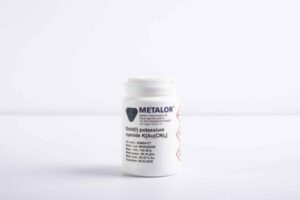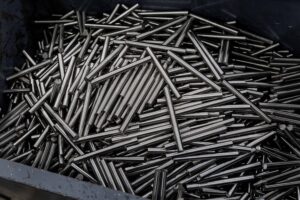Nickel alloys are a group of metals that are composed of nickel as the main component, along with other elements such as iron, chromium, molybdenum, copper, and others. The combination of these elements results in a material with improved properties compared to pure nickel. This makes nickel alloys ideal for use in a variety of industrial applications.
One of the main benefits of nickel alloys is their ability to resist corrosion. This makes them ideal for use in harsh environments, such as in the oil and gas industry, where they are used to manufacture pipes, valves, and other components. They are also commonly used in the chemical industry for the same reason.
Another advantage of nickel alloys is their high strength and ductility, making them suitable for use in demanding applications such as in the aerospace and defense industries. They are used to manufacture components such as turbochargers, fasteners, and structural components.
There are several types of nickel alloys available, each with its own unique properties and applications. Some of the most common types include:
- Monel: This is a nickel-copper alloy that is known for its high strength and resistance to corrosion. It is commonly used in marine applications, such as in the production of ship propellers and pump components.
- Inconel: This is a nickel-chromium alloy that is known for its high temperature resistance and resistance to corrosion. It is commonly used in the aerospace and defense industries, where it is used to manufacture components such as engine parts and heat exchangers.
- Hastelloy: This is a nickel-molybdenum alloy that is known for its excellent corrosion resistance and ability to withstand high temperatures. It is commonly used in the chemical industry, where it is used to manufacture valves, pumps, and other components.
In recent years, there have been several innovations in the field of nickel alloys. For example, there have been advances in the production of superalloys, which are alloys that have a higher resistance to corrosion and high temperatures. These alloys are commonly used in the aerospace and defense industries, where they are used to manufacture components such as engine parts and heat exchangers.
Another innovation in the field of nickel alloys is the development of new alloys that are more environmentally friendly. For example, there are alloys that contain lower levels of nickel and other elements that are harmful to the environment, which makes them a more sustainable option for industrial applications.
In conclusion, nickel alloys are an essential component in many industries due to their unique properties and ability to withstand harsh conditions. With continued advancements in the field of nickel alloys, it is likely that these metals will continue to play a crucial role in the manufacturing of high-quality and reliable industrial components for many years to come.
References:
- "Nickel Alloys – Properties, Fabrication and Applications" by J.R. Davis, Butterworth-Heinemann, 1998.
- "High-Performance Alloys for Aerospace, Defense, Energy and Industrial Applications" by J.R. Davis, ASM International, 2006.
- "Nickel and Its Alloys" by H.H. Uhlig, John Wiley & Sons, 1971.
- "Properties and Applications of Nickel-Based Alloys" by T.S. Sudarshan and R.A. Luthra, ASM International, 2002.
- "Handbook of Nickel Alloy Fabrication" by R.J. Reed, Elsevier, 2004.




